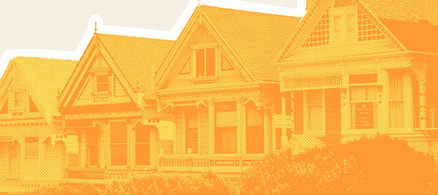Wisconsin first-time homebuyer programs
WHEDA offers two kinds of mortgages with fixed rates. Neither of these options require that you be a first-time homebuyer specifically, but you’ll have to be looking to buy a home in Wisconsin that will be used as your primary residence.
In addition to its loan and assistance programs, WHEDA offers a number of guides for hopeful homeowners, including the True Costs of Homeownership.
More: Mortgage underwriting explained
Stop overpaying for home insurance
Home insurance is an essential expense – one that can often be pricey. You can lower your monthly recurring expenses by finding a more economical alternative for home insurance.
SmartFinancial can help you do just that. SmartFinancial’s online marketplace of vetted home insurance providers allows you to quickly shop around for rates from the country’s top insurance companies, and ensure you’re paying the lowest price possible for your home insurance.
Explore better ratesHomebuying programs
Both of these WHEDA programs provide assistance to those looking to buy a home in Wisconsin that will be their primary residence. Note, both programs require a pre-purchase Home Buyer Education (HBE) for first-time homebuyers.
WHEDA Advantage Conventional
This program is designed for borrowers who want a conventional loan. Provided you have a minimum credit score of 620, you can qualify for a 30-year fixed-rate mortgage with some special perks.
First-time buyers, veterans and people buying in specific areas can qualify for lower interest rates. Users may also qualify for down payment assistance, extra money for renovations and a lower cost for mortgage insurance.
There’s also no down payment required when buying a single-family home. However, if you’re buying a two- to four-unit home, you’ll need to put down at least 3% of the purchase price and show at least six months in reserve funds.
WHEDA Advantage FHA
The WHEDA Advantage FHA program requirements and benefits are similar to those of the conventional program. However, the credit score requirement is a little higher, with a minimum score of 640.
You will also need to put down a minimum of 3.5%, but you can cover it with one of WHEDA’s down payment assistance programs.
More: Get a free credit score and credit monitoring from Credit Sesame.
Down payment assistance programs
WHEDA Easy Close DPA
This second-mortgage program is designed to help homebuyers cover the upfront costs of buying a home. To qualify for down payment and closing cost assistance, you’ll have to use one of WHEDA’s primary mortgage programs.
You can borrow up to 6% of the purchase price, with a minimum loan of $1,000.
The loan has a 10-year fixed rate that is the same as your first mortgage, which you’ll repay through monthly installments.
WHEDA Capital Access DPA
This down payment assistance program offers you a 30-year loan, with 0% interest and no monthly payments.
However, the total household income limits are generally lower than of WHEDA’s other programs. You’ll have to check with your mortgage lender to determine whether you qualify.
When paired with a WHEDA conventional loan, you can borrow up to 3% of the purchase price, with a minimum of $3,050.
With an FHA loan, the maximum is either $3,050 or 3.5% of the purchase price (whichever is greater), while the minimum is $1,000.
Need cash? Tap into your home equity
As home prices have increased, the average homeowner is sitting on a record amount of home equity. Savvy homeowners are tapping into their equity to consolidate debt, pay for home improvements, or tackle unexpected expenses. Rocket Mortgage, the nation's largest mortgage lender, offers competitive rates and expert guidance.
Get StartedWho qualifies for first-time home-buyer programs in Wisconsin?
WHEDA was established to help lower-income Wisconsinites, specifically. To ensure funding goes to the families that need it most, applicants have to fall within certain income and purchase price limits.
To check whether you qualify, WHEDA suggests you reach out to one of its participating mortgage lenders. Your lender will help you navigate the entire loan application and homebuying process.
If you’re a first-time homebuyer, you’ll be required to attend a homebuyer education class as well. There are options to take classes either online or in-person.
More: How much home can you afford?
Nationwide first-time homebuyer programs
A “conventional” mortgage sourced through the private market has pretty demanding requirements, including a credit score of at least 620 and often requires a minimum down payment of 5%.
That’s easier said than done for many first-time buyers, so you may want to look into one of these nonconventional mortgages offered through the federal government.
FHA loans
FHA loans were created by the Federal Housing Administration, which is a division of the Department of Housing and Urban Development, to help more Americans become homeowners.
These loans typically have less stringent requirements. You’ll need a minimum credit score of 580 and a 3.5% down payment, but if you’re able to put down more upfront, you could be eligible with a credit score as low as 500.
More: FHA Loan Requirements
VA loans
VA loans were created thanks to an act passed by Congress in 1944 to help veterans secure homes. As a result, the U.S. Department of Veterans Affairs (VA) can guarantee or insure home loans made to veterans by various lending institutions.
Active service members, veterans and some surviving military spouses can all qualify for a VA loan. There are fees associated — notably a sizable funding fee — but they are also exempt from down payment and mortgage insurance obligations.
USDA loans
USDA loans are for lower-income rural and suburban Americans and are guaranteed by the United States Department of Agriculture. Like VA loans, these loans don’t require a down payment or private mortgage insurance.
With a USDA home loan, you’ll have to pay a few fees: an upfront 1% guarantee fee and an annual 0.35% fee. But the total cost still ends up less than the amount you’d pay in mortgage insurance on another type of loan.
These loans aren’t meant for most households: They have a strict income limit. The current income limits in most parts of the U.S. are $86,850 for one- to four-member households and $114,650 for five- to eight-member households, but the thresholds may be higher if you live in a county with a steeper-than-average cost of living. The USDA website has the exact figures for each region.
Next steps to buying a home in WI
Now you know what homebuyer programs are available, what's next?
Well, your credit store is crucial if you want to qualify for any of these options. Credit Sesame can help you find out your score for free.
Is your score not exactly up to WHEDA’s standards? There are some great options out there, like Credit Strong, that will help you get the score you need to qualify.
With your score in hand, your next step is to gather the essential documents you need to demonstrate that you’ve got a steady income.
Once you’re all set, it’s time to get pre-approved for a mortgage so you can start house hunting.
| Arizona | |
| Arkansas | |
| California | |
| Colorado | |
| Connecticut | |
| Delaware | |
| Florida | |
| Georgia | |
| Hawaii | |
| Idaho | |
| Illinois | |
| Indiana | |
| Iowa | |
| Kansas | |
| Kentucky | |
| Louisiana | |
| Massachusetts | |
| Michigan | |
| Minnesota | |
| Missouri | |
| Montana | |
| Nebraska | |
| Nevada | |
| New Mexico | |
| New York | |
| North Carolina | |
| Ohio | |
| Oklahoma | |
| Oregon | |
| Pennsylvania | |
| South Dakota | |
| Tennessee | |
| Texas | |
| Utah | |
| Virginia | |
| Washington | |
| Wisconsin | |
| Wyoming |
Sponsored
Follow These Steps if you Want to Retire Early
Secure your financial future with a tailored plan to maximize investments, navigate taxes, and retire comfortably.
Zoe Financial is an online platform that can match you with a network of vetted fiduciary advisors who are evaluated based on their credentials, education, experience, and pricing. The best part? - there is no fee to find an advisor.








